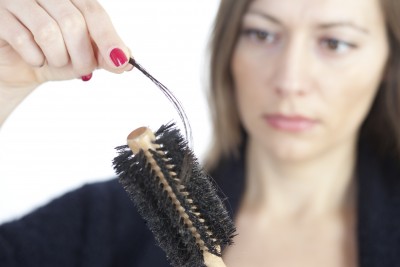You may have noticed your hair is beginning to thin. You assume genetics is the culprit and you’re destined to watch your hair thin and eventually fall out completely. Genetics plays a role in this, but there are several other causes of thinning hair or hair loss. Learn about some of these reasons and how you can take the necessary steps to prevent, or at least slow down, future hair loss.
Heredity
The most common cause of male and female pattern baldness is genetics. Typically, androgenetic alopecia is the reason men suffer thinning hairlines and women lose hair on the top or the front of their scalp. There’s an old wives’ tale that insists men look to their maternal grandfather to determine their hair’s fate. However, this is actually impossible to determine.
Hormones
The fluctuating hormones that accompany puberty can trigger premature thinning or loss. There are other instances when hair thinning can occur for a brief period of time. For instance, many women notice hair thinning or loss after pregnancy or during the beginning stages of menopause. If you’re a woman suffering from hormone-related hair loss, speak to your doctor immediately to prevent this unfortunate setback from becoming permanent.
Medical Issues
According to the Mayo Clinic, there are several medical issues and conditions that cause premature balding, hair thinning and loss:
- Ringworm. Several fungal and bacterial scalp infections, including ringworm, can irritate the hair follicles and lead to temporary loss or thinning. However, in most cases, once the issue is treated the hair loss discontinues.
- Alopecia areata. Alopecia is an auto-immune disease that triggers the body to attack its own hair follicles. The resulting hair loss can be minor or significant. It’s not uncommon for people suffering with a severe case of alopecia to lose all their body hair as well.
- Thyroid. Your thyroid gland regulates hormones. If there’s a deficiency or issue, such as cancer, hair loss can occur.
Other Causes
Aside from disease and genetics, there are several other causes of temporary and permanent hair loss:
- Medications. A variety of medications lead to temporary hair loss. Among the most well-known are medications used to treat cancer, notably chemotherapy drugs.
- Shock. According to the Mayo Clinic, a sudden medical or physical shock can lead to temporary hair loss. For instance, a high fever can make you lose hair. A dramatic weight loss is also a cause of unexpected hair loss.
- Braids and extensions. The constant pulling, yanking and damaging caused by several hairstyles, such as cornrows, braids and extensions, can permanently damage hair follicles. After several years of continued pulling and tugging, the follicles stop producing new hair.
How to Prevent Future Hair Loss
No matter what the cause, there are several ways to prevent future hair thinning and loss:
- Rethink your diet. If you’re suffering from a vitamin deficiency, it could cause temporary or permanent hair loss. If this is the case, consider taking hair growth vitamins for women or men.
- Relax. Stress is a common cause of hair loss. If stress is the culprit, pinpoint the causes of your anxiety, or at the least, take a few minutes each day to relax and concentrate on yourself.
- Speak to your doctor or dermatologist. If you’re truly concerned about hair loss, speak to a doctor or dermatologist. Aside from diagnosing the underlying cause, a professional can recommend potential therapies, including supplements, medications and hair-replacement surgery.
Thinning hair or hair loss are potentially devastating issues. If you notice your hair starting to thin, don’t suffer in silence. You’ll discover many people suffer from the same issue, and there are many ways to treat this common occurrence.
About the Author: Simon Gilman is a contributing blogger and professional hair stylist with 15 years of experience.











